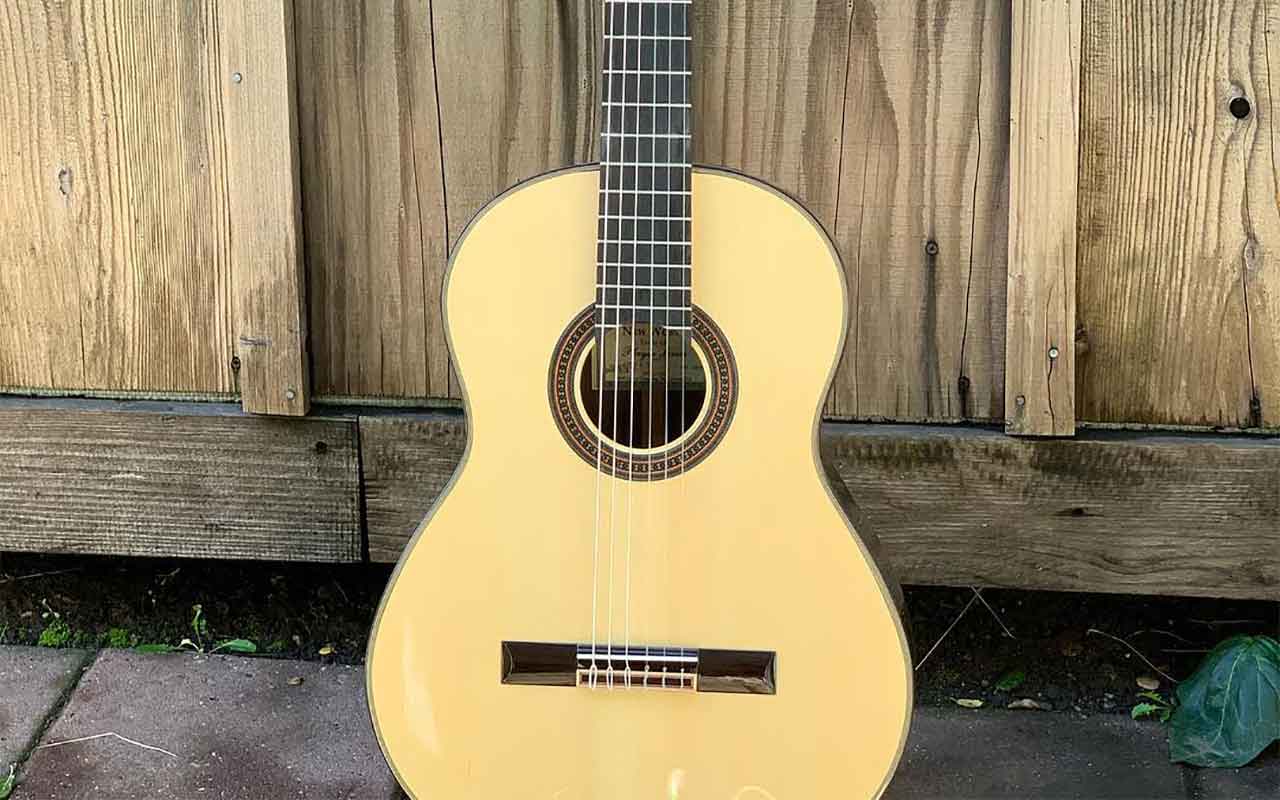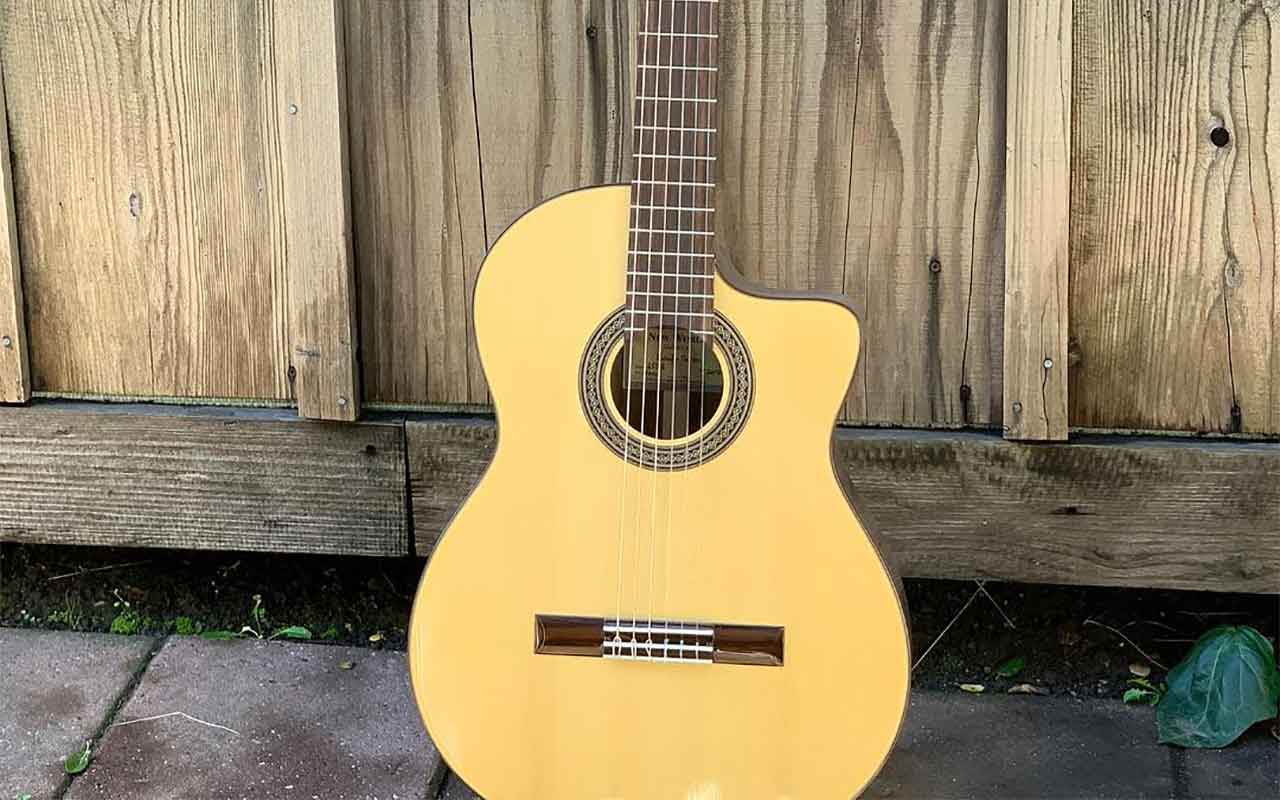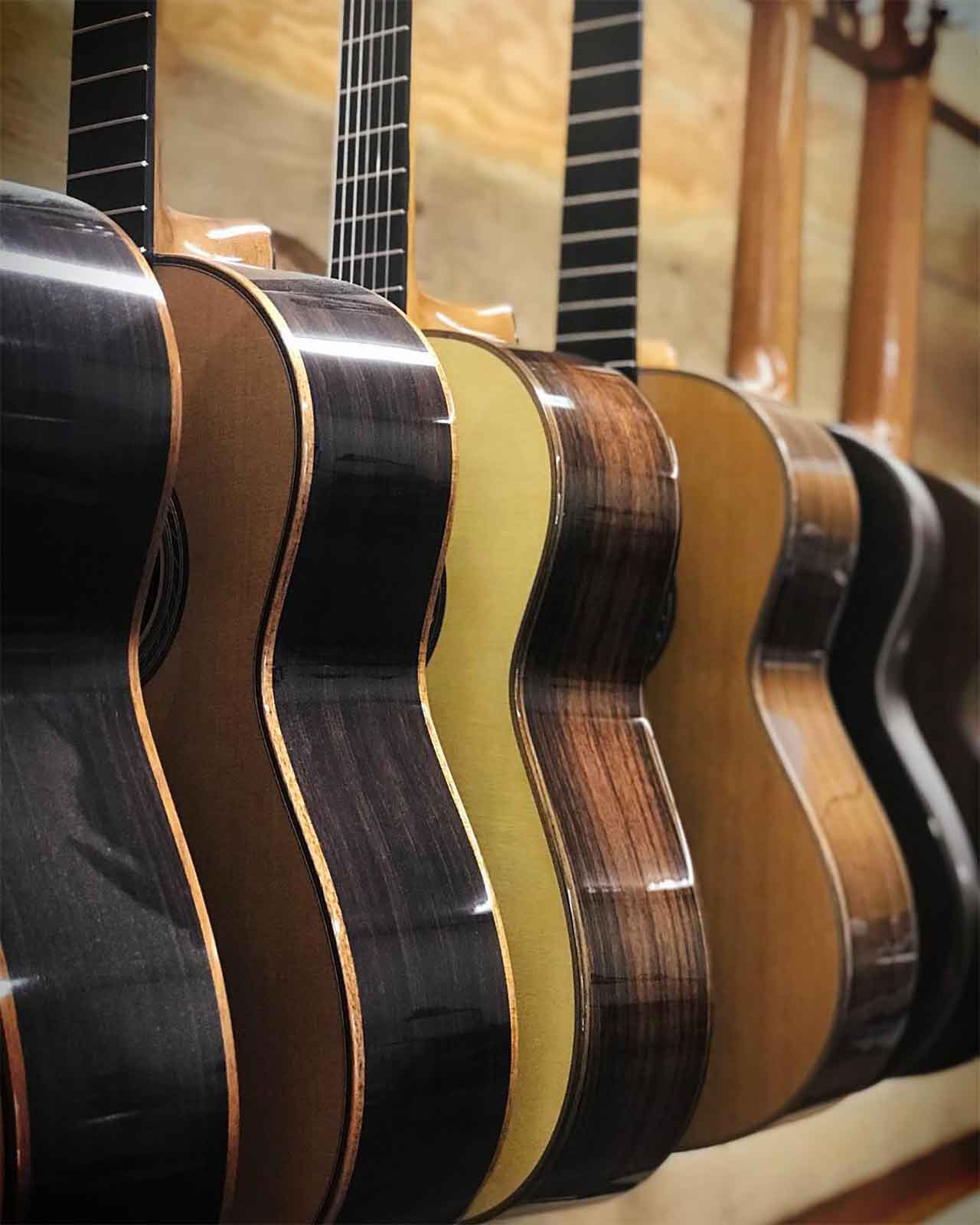
Kenneth Hill Guitar Luthier Interview 1 Background
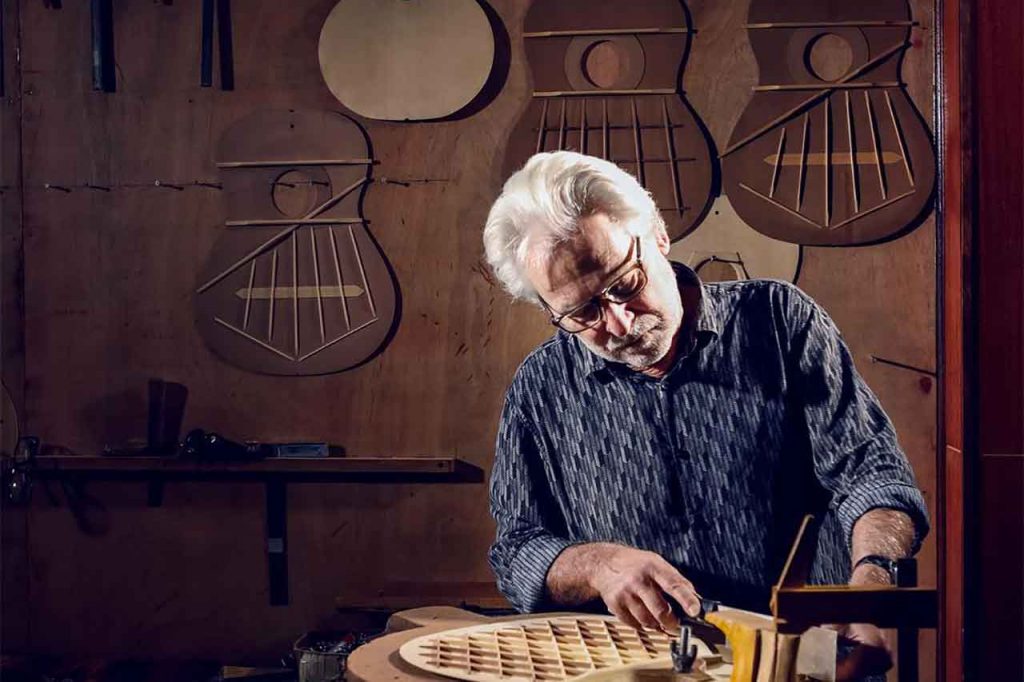
Kenneth Hill Guitar Luthier Interview 1 Background
Kenneth Hill Guitar Luthier – For those who don’t know you yet, can you tell us about your background? Did you go to Luthiers school? Did you follow a training with already established Luthiers? And, if you don’t mind my asking, what did you do before embarking on this adventure? Were you a musician before becoming a luthier? Or did you do anything else? And, by the way, do you still find time to play music with your work as a Luthier?
In the early 1970s I accidentally got a job doing guitar repair.
I didn’t really know anything but I just figured it out anyway. At the same time I started self studying classical guitar. I had played keyboard before, mostly Bach, but I just switched to guitar at around age 23. In 1972 I started my own guitar repair business which eventually led to trying my hand at guitar building. I always have felt that building and playing were intertwined, each influences and encourages the other.
I’m self taught — trial and error— although I have always tried to learn from others wherever possible.
There was a period of time that I did car mechanics to support my young family; that was my father’s trade and I learned it from very young. I learned a lot about running a business from that experience, and fortunately I was able to get back to guitar making and make it work as my day job. I have also done carpentry, but that has mostly been on my own or my family homes.
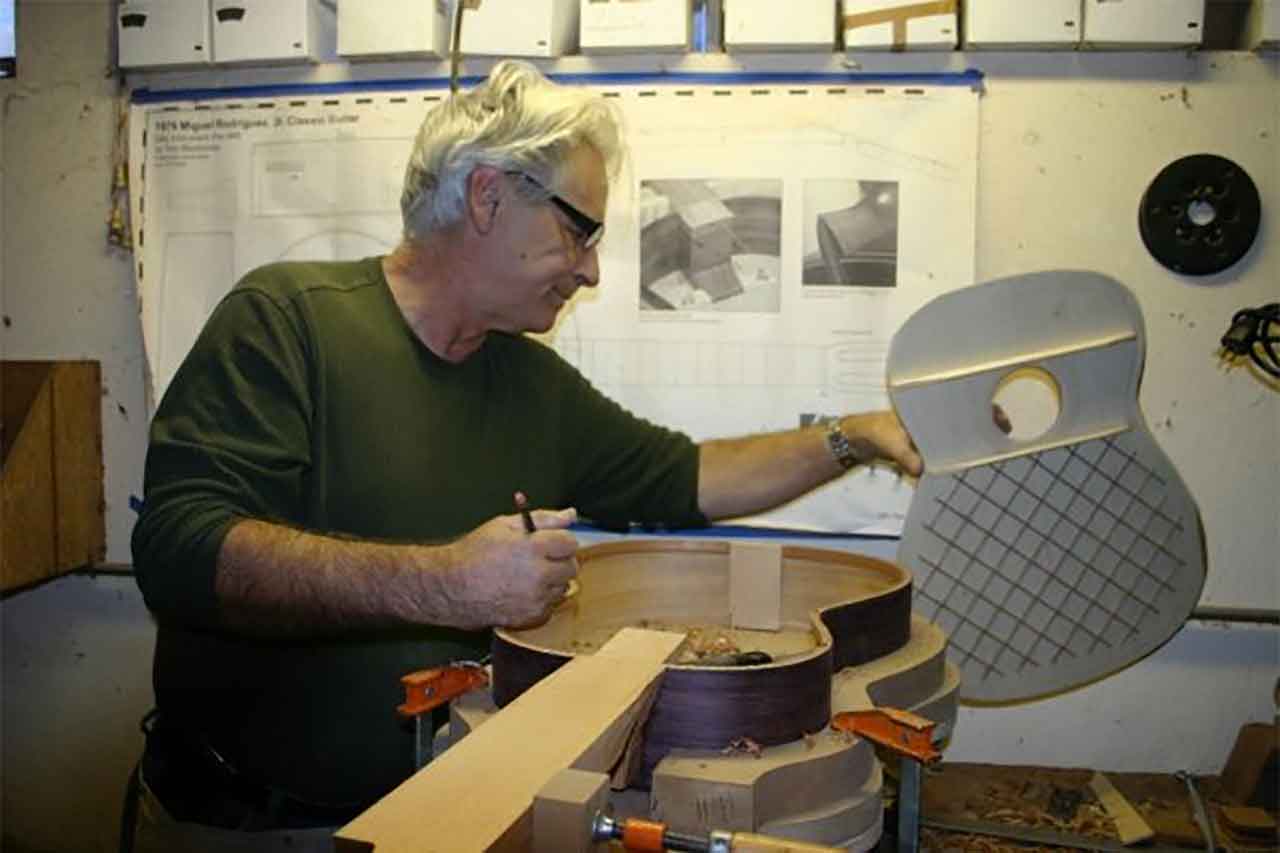
I have always been able to continue playing on a professional/amateur basis continually up to today.
These days I am putting a lot of effort into composing music for the guitar, something I left off doing years ago and always wanted to get back to. I finally have the opportunity now and it brings me back full circle to the excitement that got me into this in the first place.
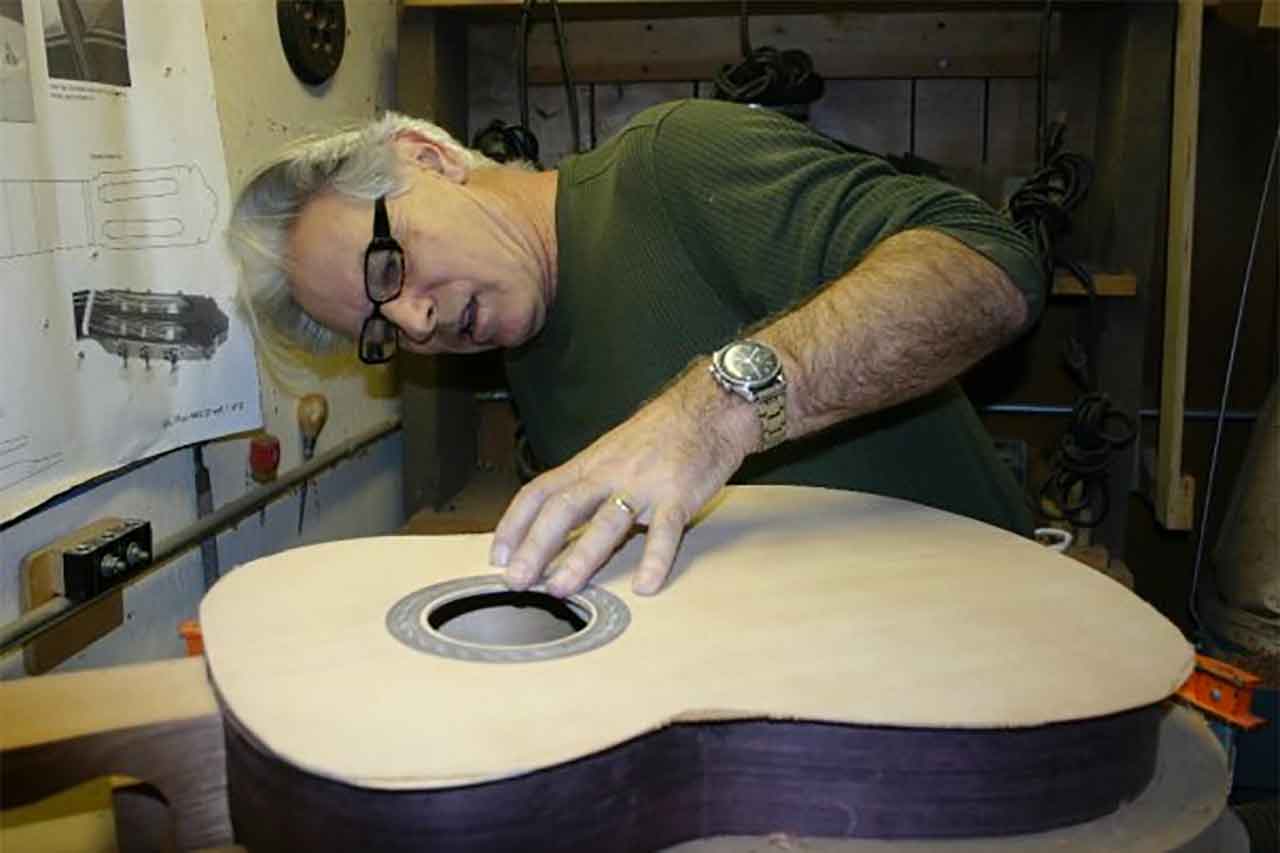
What acoustic characteristics have you managed to achieve? and can you tell us what you think is the most important thing when you design a guitar?
We all want the same things — beauty, power, dynamic range, color, balance, playability, good price
I like for a guitar to have a very flexible dynamic sound spectrum that the player can mold to their own goals. I also consider playability to be very important, the guitar should never resist the player. It should make the player better.
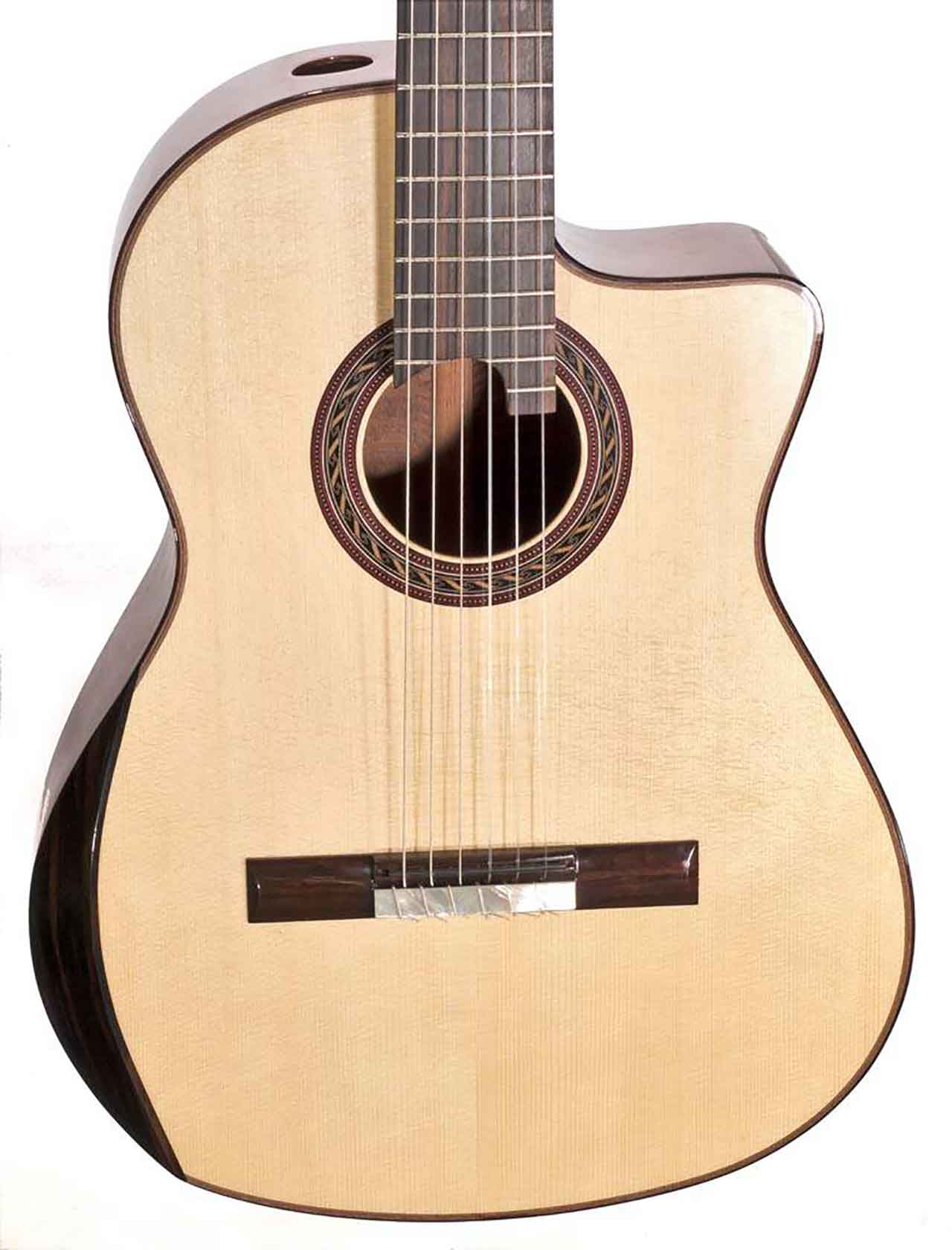
Kenneth Hill Guitar Luthier – Can you tell us about your current flagship models? Do you have a range that you do regularly? Do you also make unique custom models ? How did you proceed to create them ? What were your choices and your creation process? What kind of musicians do you cater to?
I’m currently focused on my Legacy Model.
It is a rather exotic instrument by classical standards, though very sensible and natural to me. It has all of the innovations that I have tried and retained over years of experimenting — double top, lattice bracing, elevated fingerboard, truss rod, sound ports, ergonomic body design, True Tempered fretting, French polish.
These are all elements that I have gradually accumulated as preferences in my own ideal playing guitar, and taken all together creates a wonderful instrument that can play anything.
I’m producing instruments that work for me first, and hopefully can serve many many other players as well. Whether concert pros, teachers, students or aficionados, it’s all for the romance of beautiful sound.
The sound of your instruments is really outstanding. Do you have a secret for the building of your instrument ? the woods ? the construction ?
Really I don’t think there are any secrets.
A guitar arises from the materials, the design, the workmanship, the process, the weather, and probably even the mood and diet of the builder. I have put together some nice recipes of design ingredients, and a good wood supply, a lovely shop and some outstanding craftsmen.
There are many ways to make a pleasing guitar.
I think it is the passion for sound that ultimately creates and distinguishes the instrument.
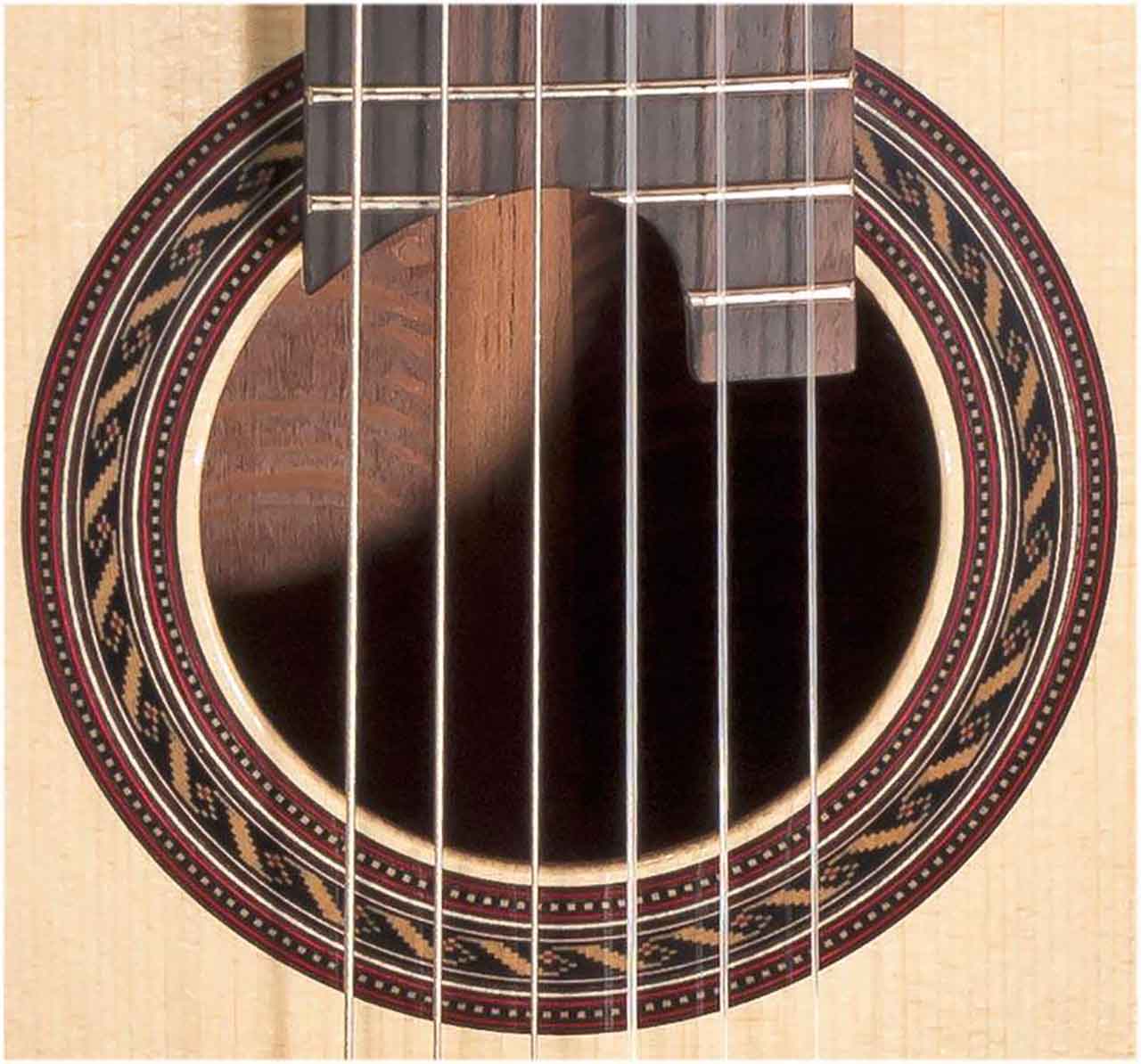
Kenneth Hill Guitar Luthier – Those who know you know that you are a great lover of beautiful woods, how do you help your customers to choose the woods of their future guitar in relation to the sound they have in mind? Can you easily find wood in your networks? If so, can you name some of your suppliers?
The first question is spruce or cedar?
Then it’s back and sides — Indian rosewood? Maple, cypress, something else? Brazilian rosewood?
Most bodies are from Indian rosewood, which is very trustworthy, but other hardwoods can bring their own flavor. Top wood is personal preference or opinion or prejudice.
There is no single correct answer for any of it.
Wood selection is a significant part of of a guitar, but it doesn’t guarantee a particular outcome.
It seems most all wood choices are still available if you are willing to pay the price. There are a few luthier supply companies in USA and Europe who do a very good job of providing product and service. They are all very helpful, most are now old friends.
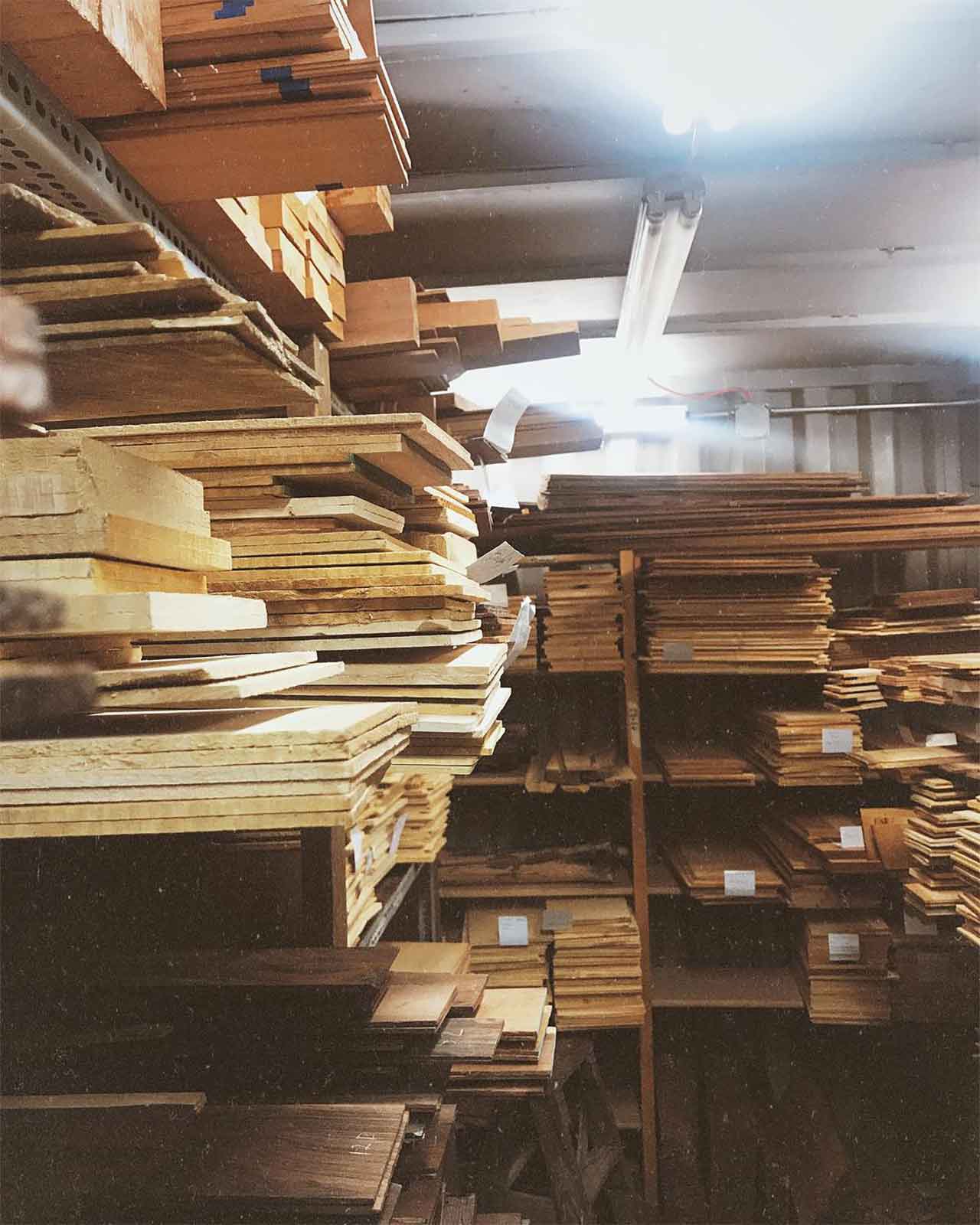
There is a huge selection of aftermarket parts. Do you work with regular suppliers or are you always on the lookout for new suppliers who can offer you something new? Do you have any examples to give us?
I use wood, tuners and sometimes pickups.
The really good tuners keep getting more expensive, but that’s part of the game. I use Barbera pickups because in my experience that is the best.
A few people are trying to develop good pickups, but nylon string is a small market, and in general engineers don’t really know much about it.
I often use True Tempered frets which I get from Sweden. In general the supply chain can be unpredictable these days.
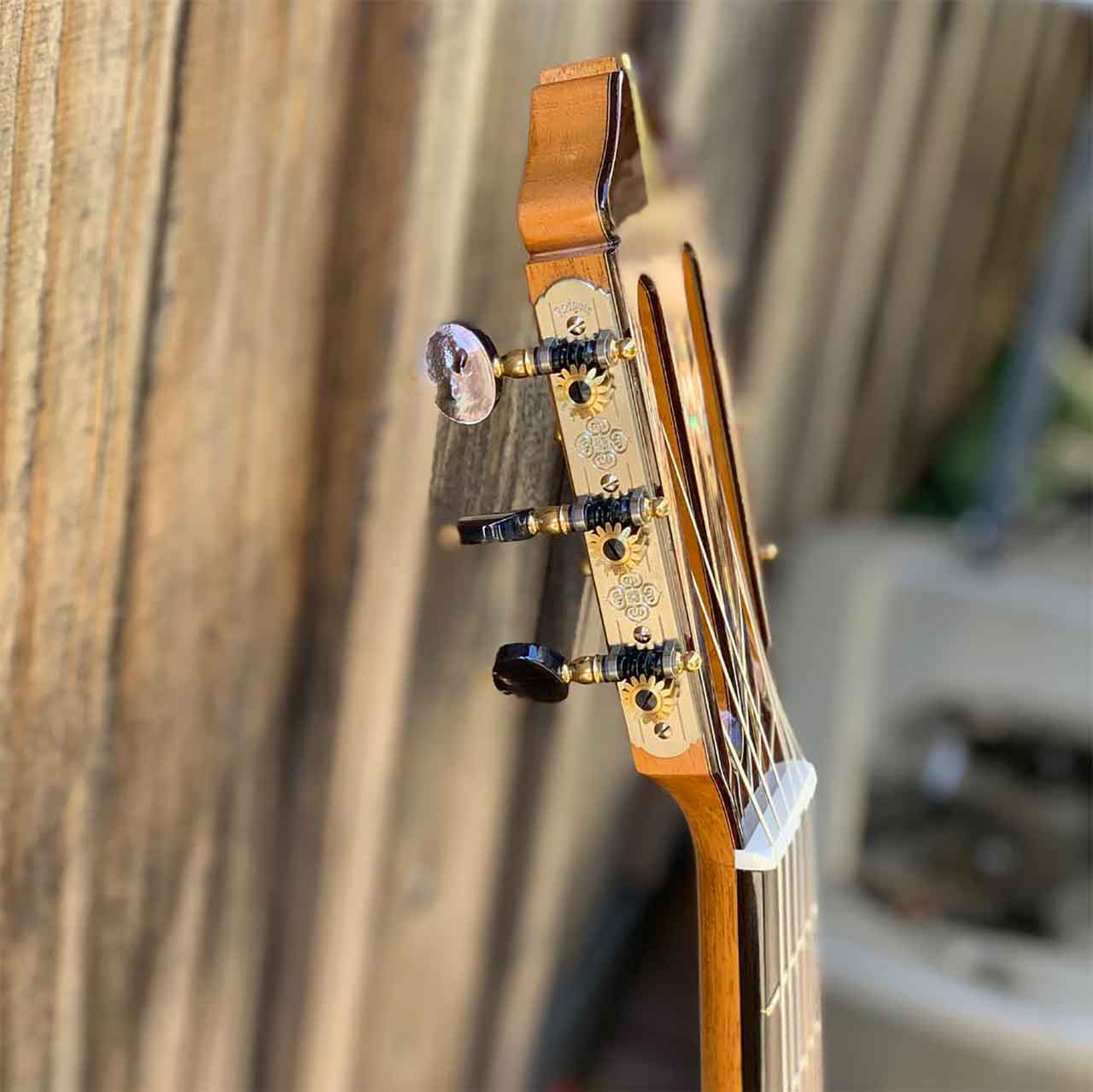
When you can‘t find the parts you want at your aftermarket suppliers, do you ever create parts yourself or hire specialized craftsmen? Can you give us some examples?
I have a good CNC friend to make bridges and some other small parts.
We have a small CNC machine in the shop to do the True Tempered fingerboards and some other things, but it is also very handy to have a friend make some parts for us.
We used to do every single thing by hand, but now this arrangement works out pretty well.
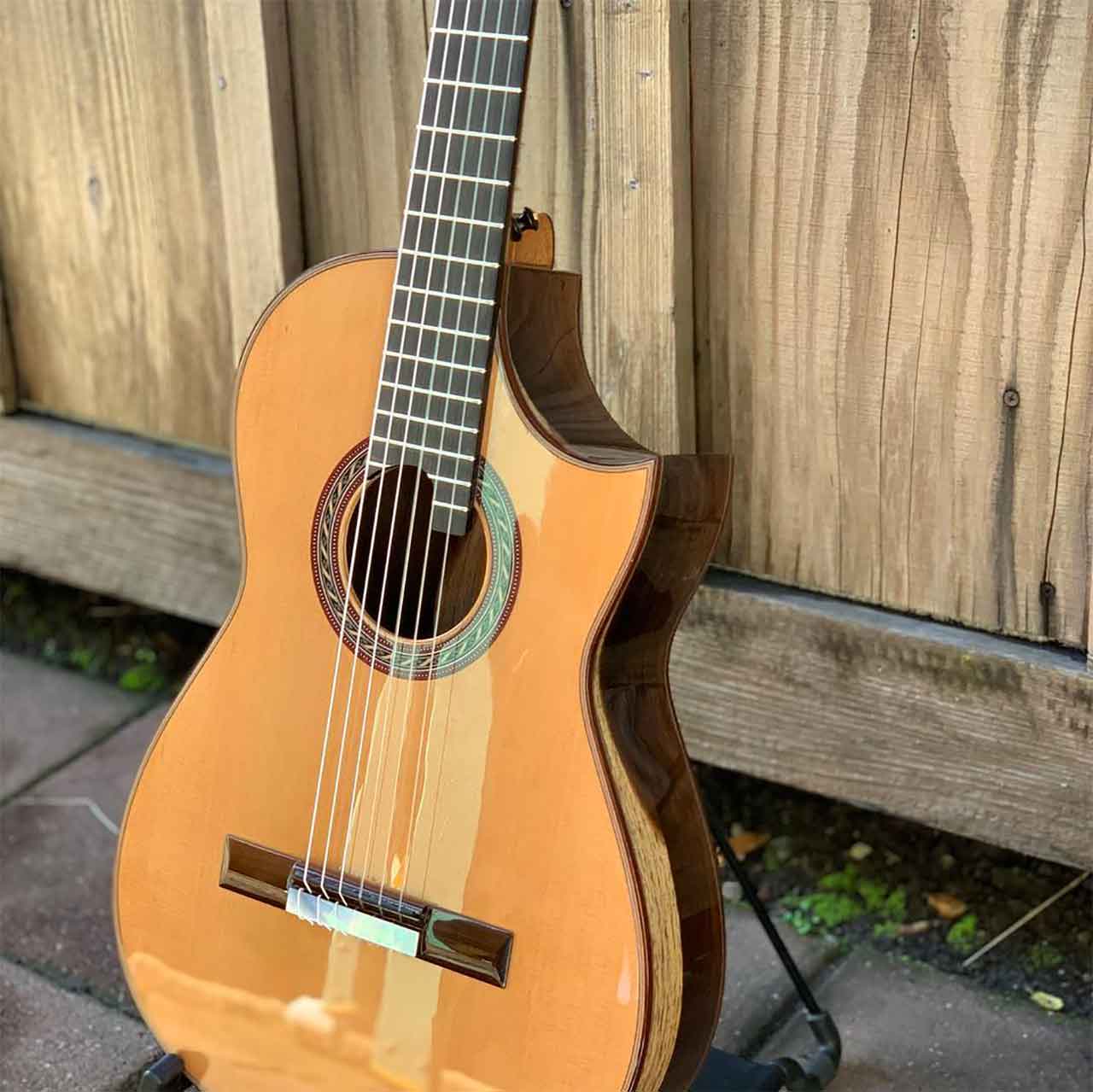
Kenneth Hill Guitar Luthier – Which luthiers inspired you and whose work you admire the most ?
The luthiers I’ve known who affected me the most were John Gilbert, Tom Humphrey, Robert Ruck and Jose Romanillos.
The historic builder I feel the most affinity for is Antonio Torres. I have been self taught but I do absorb things from all around. These days I don’t see much of what others are doing, I’m busy with my own stuff. I do like reading articles by other luthiers.
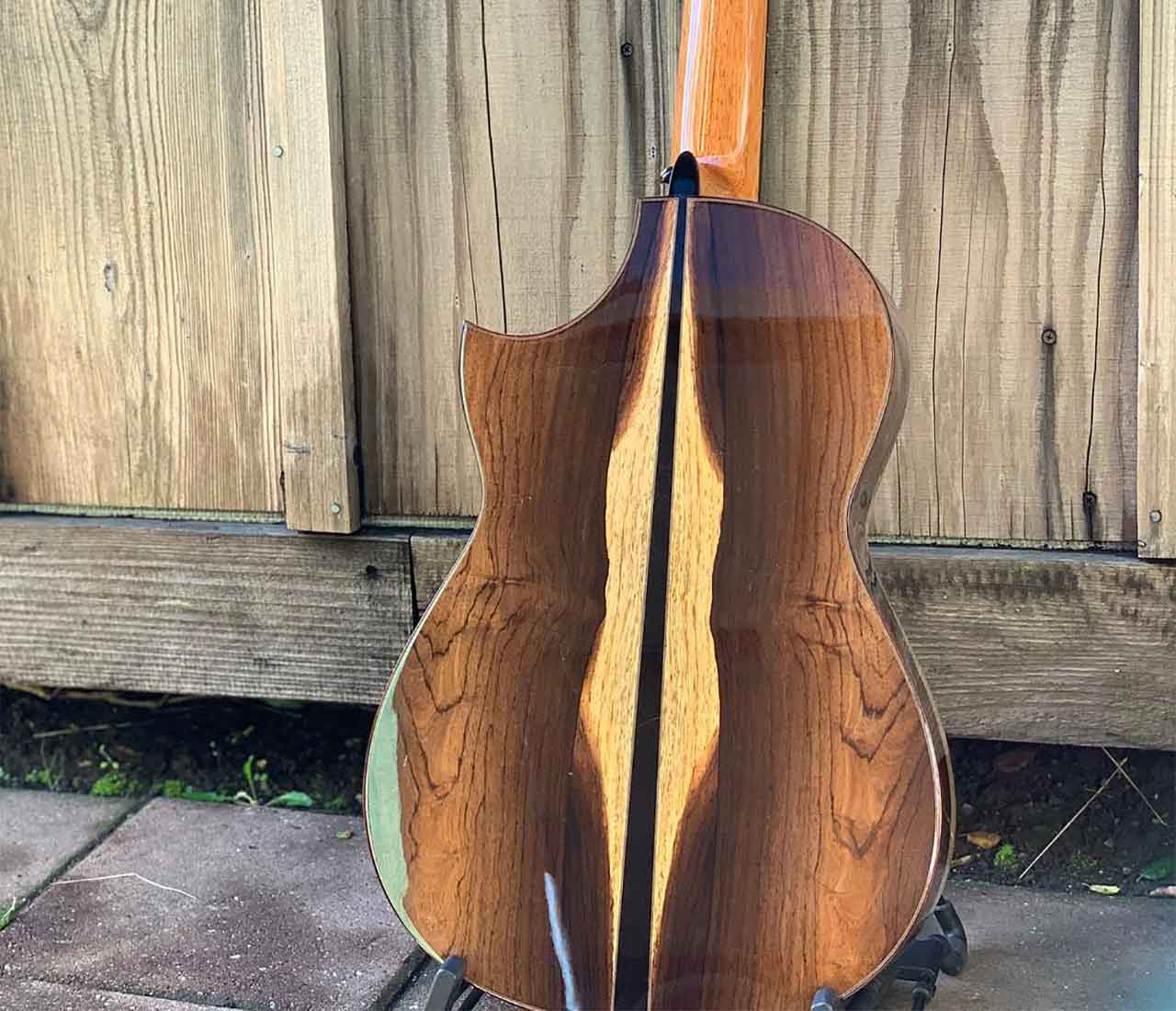
Kenneth Hill Guitar Luthier – Luthiers.com brings together luthiers from all over the world. According to you, how is American lutherie different ? did you have a mentor ? who trained you ? and who do you admire the most ?
For classical guitars American luthiers are almost without exception lone workers, individual luthiers working in a small shop alone. I’m the only one I know of who runs a workshop with a team.
Steel string is a different story. That’s an American roots instrument. In general I think American guitar builders are willing, almost eager to share their ideas and knowledge. I find European builders to be much more coy, secretive and protective of their ideas. In China everybody just copies everybody.
I made the decision many years ago that it is more fun and adventurous to build with a small team of excellent luthiers. It’s much quicker to experiment with new ideas, and we can all learn from each other. It’s a different business model from working alone and has its challenges, but it is how I have worked over the second half of my career. It’s a good experience.
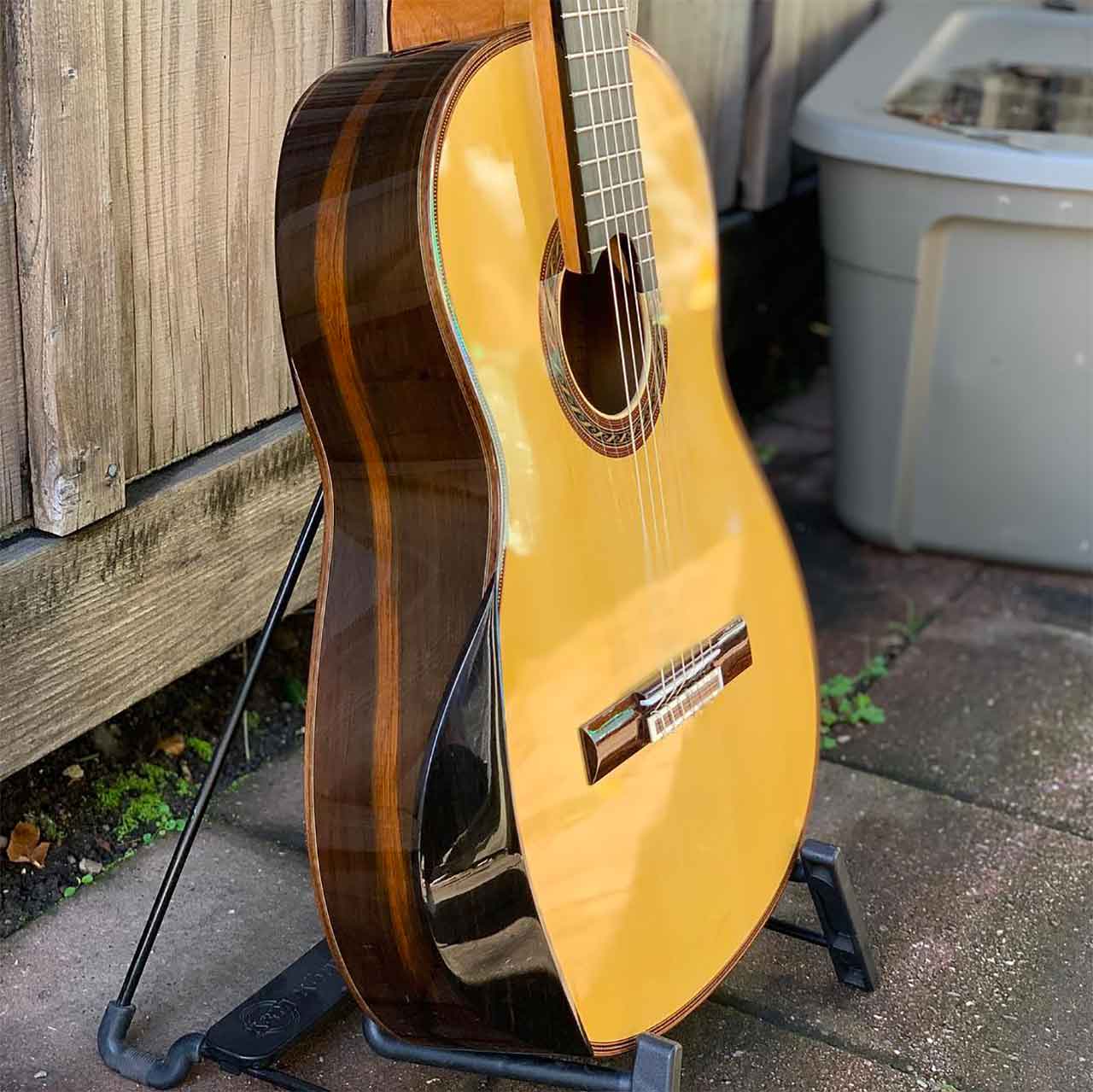
Do you still repair instruments or do you only concentrate on making instruments ?
We repair our own instruments, but nothing else. Repair is a whole different craft.

Kenneth Hill Guitar Luthier – How do you help your clients choose the woods for the fingerboard of their instrument in relation to the sound they want to achieve? Can you tell us how this choice affects the other woods used in the construction of an instrument?
We are only using ebony for fingerboards. Rosewood works fine too and I’m sure there are other woods that can work, but at this time customers are not interested in other choices. Neither am I. Ebony is ok. I don’t really have an opinion about how the fingerboard affects the sound.
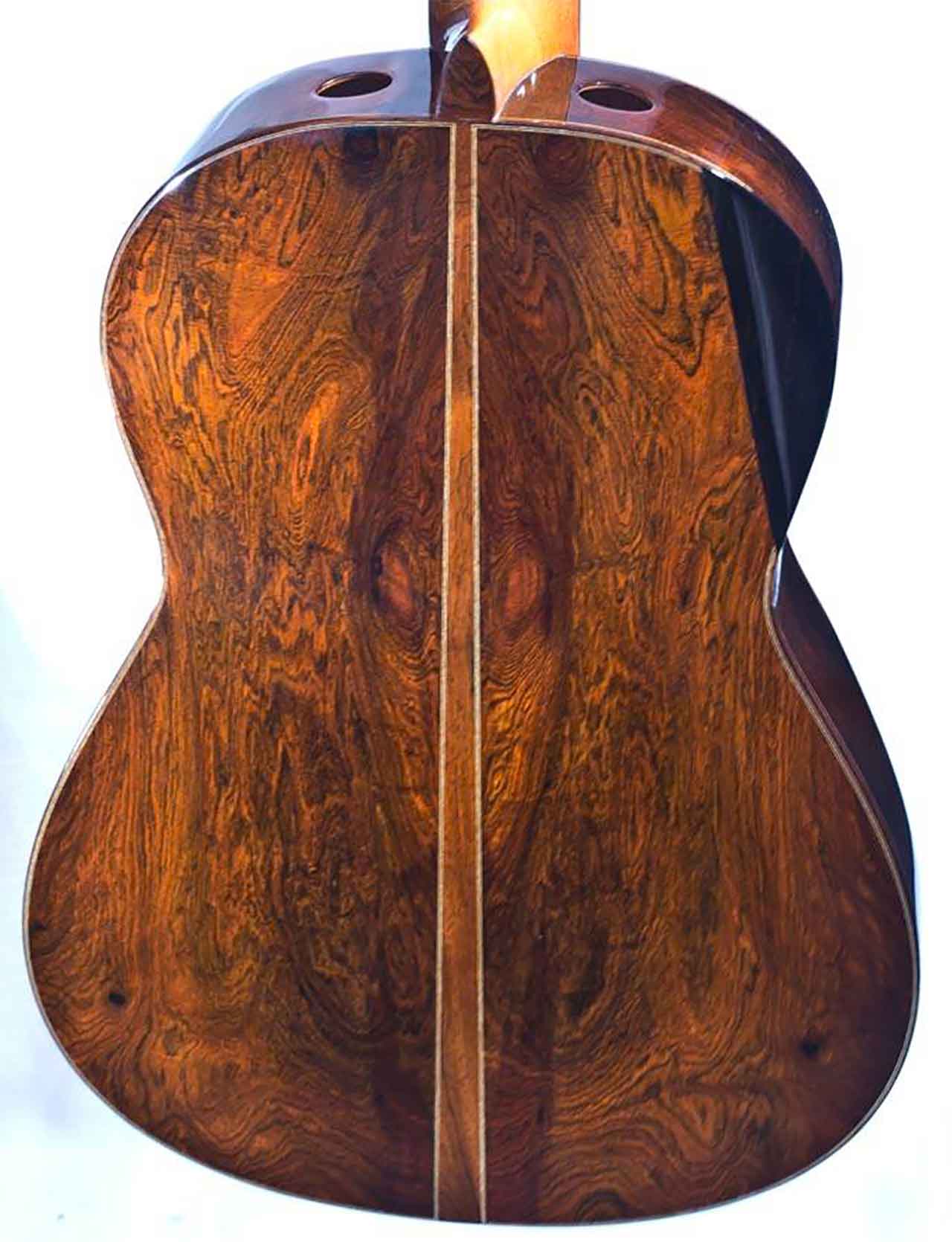
Kenneth Hill Guitar Luthier – Where can we buy your instruments ? can we try them somewhere ? do you plan to do some shows soon ?
Much of what we are doing is custom ordered but we do also manage to make a few instruments for inventory and sale, so you can always contact me.
And we do have some fine dealers who have instruments for sale from time to time. Our dealers are great.
Shows have been such an important part of my life for business, for inspiration and for friendships. I’ve attended so many festivals in US, Europe and Asia, and many of my most important and enduring relationships have come from trade shows.
Now, that travel pattern has been broken, and also I’m older and not as excited about travel as I used to be.
I hope to be a part of the GFA show this June but aside from that I don’t have any plans. I won’t be exhibiting at the NAMM show unless someone else wants to pay for it.
Shows worldwide have been very important to me, but maybe this is a new era.
I love where I live and spending time with family and friends in my own environments means a lot to me.
Do you have any advice for future young luthiers? Can you give them advice on training courses? Do you know of any special schools?
It’s a hard business to live off of. Making the guitar is the easy part. Making a living at it is very hard, requiring a whole different attitude and skill set.
People who have come to me from luthier courses show a beginning level of commitment, but don’t usually have any developed skills, mostly just a little vocabulary and a lot of unfounded opinions. It takes a lot of work to get skills up and ideas and concepts sorted out. It takes even more work to build a name and public confidence. And there is a lot of competition. And the public can be very fickle. It’s a fashion business.
It probably helps to marry into money.
I have thought about teaching some classes as a sort of retirement project. I did that successfully a few times many years ago. It’s fun, but it’s also a lot of work. I haven’t decided anything yet.
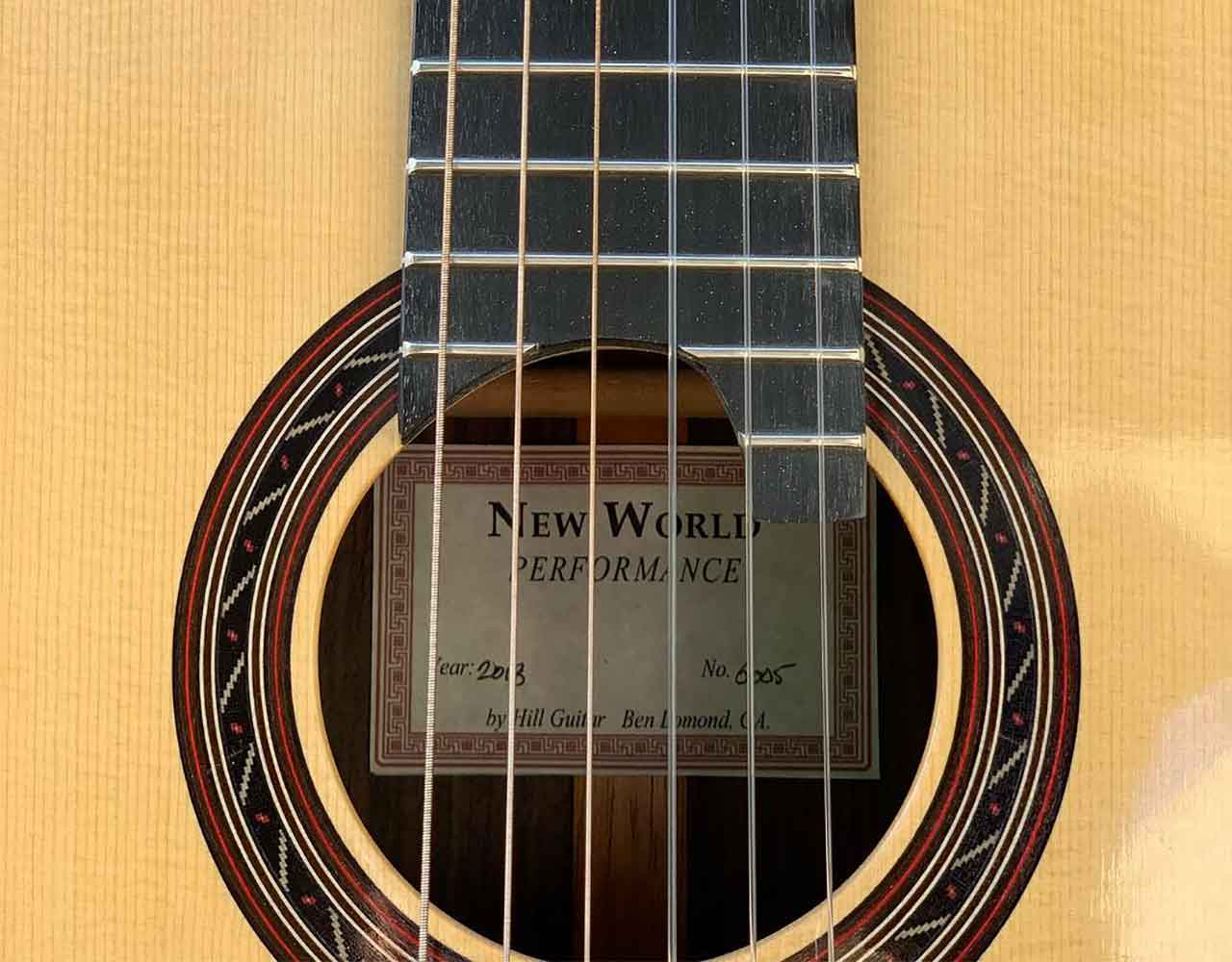
The profession of Luthier is a trade that requires a significant material investment to start its activity. What would you advise a young luthier to buy to start? The minimum required? And, the maximum to be in a comfortable working environment?
The first time I visited Paracho in Mexico a young guitar maker asked me if I wanted to see his tools.
Of course I wanted to. He took me to a one room house with a dirt floor and a table, his tools were in a shoe box; a knife, a small saw, block plane, a scraper, coping saw, a ball of string, small hammer, a charcoal heated bending pipe, sharpening stone, a few other little things. All held with his two hands. I thought he was kidding, but I eventually learned to do many things that way and felt really good about it.
Of course that’s not how I do it now.
Besides normal woodworking tools I love a little plastic dial caliper. A thickness sander is really helpful, essential really. I’ll estimate you can get a good simple start for $800.00 or you could spend $20,000.00 and have pretty much everything you need. Plus wood. And work space.
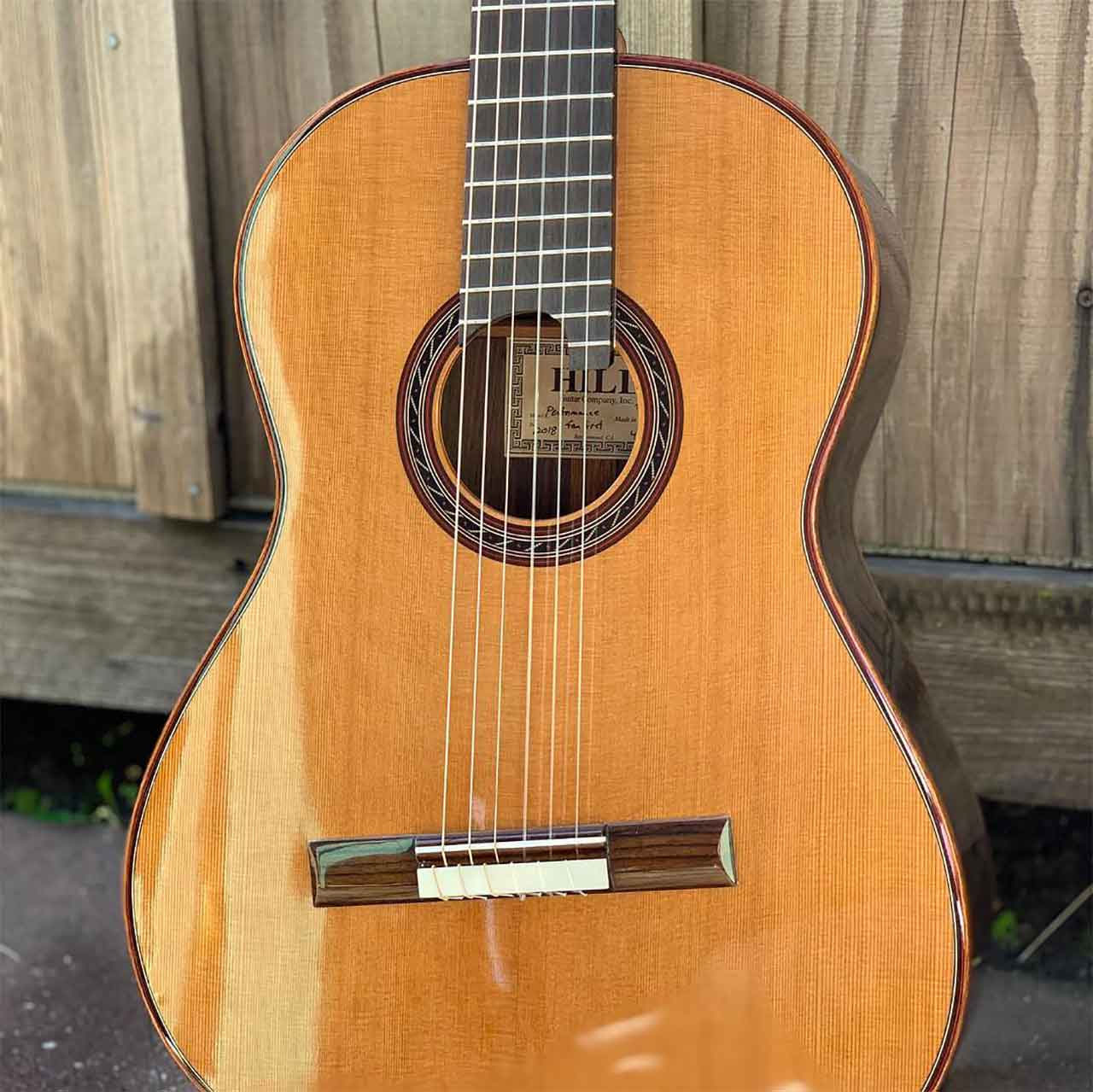
Part of being a real craftsperson is being able to adapt and figure out how to solve problems and work with what you have.
And do better the next time. It’s about seeing the big picture and the small details in front of you at the same time. That goes for many things in life.
I feel very fortunate to have found this beautiful instrument the classical guitar as a centerpiece for my work life. From the forest and trees, to the workshop and designs, to the enjoyment of the music of the masters to the inspiration of other artists.
And now to be writing my own music out of thin air to be played on these instruments, it is an incredible cycle of life and makes everything seem whole. I’m very grateful. There is still so much to do.
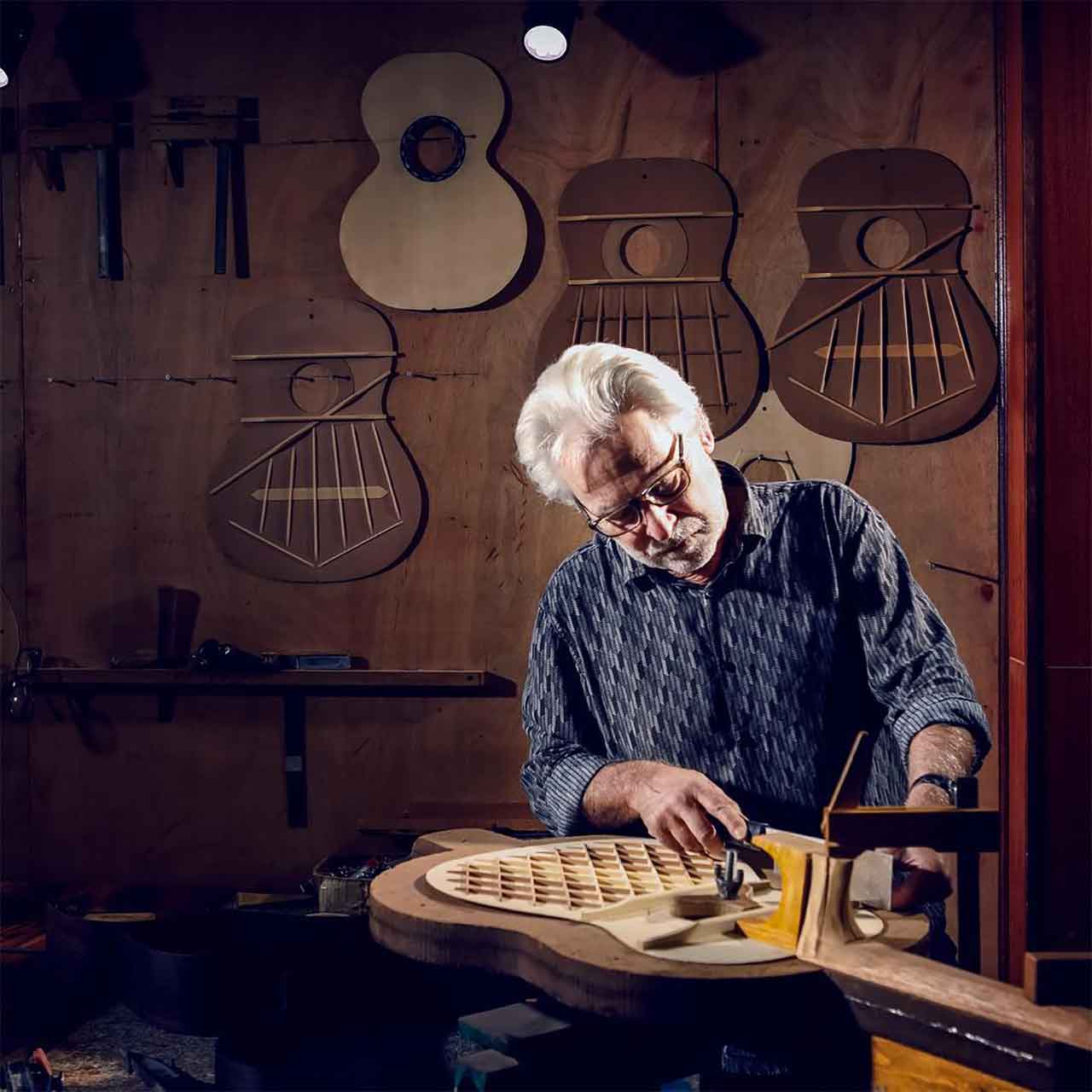
You can contact Kenneth Hill
using the contact form on his personal page on Luthiers.com here :
https://luthiers.com/listing/kenneth-hill-guitar-company-inc/
We also invite you to follow him on his various social networks:
- Facebook: https://www.facebook.com/hillguitarcompany/
- Instagram: https://www.instagram.com/hillguitar/
- Website: http://hillguitar.com
Kenneth Hill Guitar Luthier Interview 1 Background
In the coming weeks, as for others luthiers for plucked string instruments, luthiers for bowed string instruments, amps & effects makers, wood & supplies dealers, lutherie events, jobs, schools & teachers subscribers on our site, you will be able to follow our series of mini-interviews dedicated to the fascinating world of luthiers.
See you soon…
#luthiers
Subscribe to the newsletter!
Subscribe to our newsletter to follow all our news and those of our luthiers.
If you are passionate about the world of luthiers, join us!
